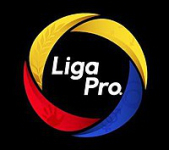| Coach | NA |
| Venue | Estadio Rodrigo Paz Delgado |
LDU de Quito Trivia
LDU de Quito predictions
Predictions for LDU de Quito: See upcoming and historic predictions for LDU de Quito below.
Disclaimer: Past performance does not guarantee future results. Betting involves risk; only wager what you can afford to lose. Always gamble responsibly.
LDU de Quito Opinions
 Who is the greatest player in the history of LDU de Quito?
Who is the greatest player in the history of LDU de Quito?
LDU de Quito latest results
| 22/05 | - | ||
| 30/04 | - | ||
| 06/04 | - | ||
| 28/03 | 5 - 0 | ||
| 16/03 | 1 - 2 |
LDU de Quito latest transfers
| Date | Player | From | To | Price |
|---|---|---|---|---|
| 2024-02-17 | A. Arce | Independ. Rivadavia | LDU de Quito | € 2.8M |
| 2022-02-10 | D. Reasco | LDU de Quito | Newells Old Boys | € 1.1M |
| 2022-01-01 | J. Alcívar | LDU de Quito | Charlotte | € 2.7M |
| 2019-07-01 | A. Ordóñez | Eintracht Frankfurt | LDU de Quito | € 450K |
| 2012-01-31 | A. Nahuelpán | Racing Santander | LDU de Quito | € 1.9M |
| 2012-01-25 | H. Barcos | LDU de Quito | Palmeiras | € 2.7M |
| 2010-01-01 | C. Bieler | LDU de Quito | Racing Club | € 1.4M |
Liga Pro standings
| Rank | Team | MP | W | D | L | GF | GA | GD | Pts |
|---|---|---|---|---|---|---|---|---|---|
| 1 |
 Aucas
Aucas
|
0 | 0 | 0 | 0 | 0 | 0 | 0 | 0 |
| 2 |
 Barcelona SC
Barcelona SC
|
0 | 0 | 0 | 0 | 0 | 0 | 0 | 0 |
| 3 |
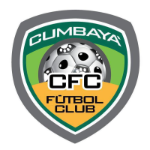 Cumbayá
Cumbayá
|
0 | 0 | 0 | 0 | 0 | 0 | 0 | 0 |
| 4 |
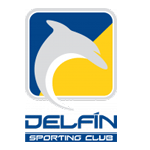 Delfin SC
Delfin SC
|
0 | 0 | 0 | 0 | 0 | 0 | 0 | 0 |
| 5 |
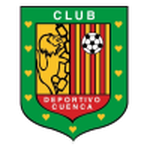 Deportivo Cuenca
Deportivo Cuenca
|
0 | 0 | 0 | 0 | 0 | 0 | 0 | 0 |
| 6 |
 El Nacional
El Nacional
|
0 | 0 | 0 | 0 | 0 | 0 | 0 | 0 |
| 7 |
 Emelec
Emelec
|
0 | 0 | 0 | 0 | 0 | 0 | 0 | 0 |
| 8 |
 Imbabura
Imbabura
|
0 | 0 | 0 | 0 | 0 | 0 | 0 | 0 |
| 9 |
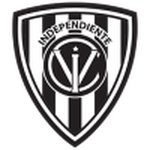 Independiente del Valle
Independiente del Valle
|
0 | 0 | 0 | 0 | 0 | 0 | 0 | 0 |
| 10 |
 LDU de Quito
LDU de Quito
|
0 | 0 | 0 | 0 | 0 | 0 | 0 | 0 |
| 11 |
 Libertad
Libertad
|
0 | 0 | 0 | 0 | 0 | 0 | 0 | 0 |
| 12 |
 Macara
Macara
|
0 | 0 | 0 | 0 | 0 | 0 | 0 | 0 |
| 13 |
 Mushuc Runa SC
Mushuc Runa SC
|
0 | 0 | 0 | 0 | 0 | 0 | 0 | 0 |
| 14 |
 Orense SC
Orense SC
|
0 | 0 | 0 | 0 | 0 | 0 | 0 | 0 |
| 15 |
 Tecnico Universitario
Tecnico Universitario
|
0 | 0 | 0 | 0 | 0 | 0 | 0 | 0 |
| 16 |
 Universidad Catolica
Universidad Catolica
|
0 | 0 | 0 | 0 | 0 | 0 | 0 | 0 |
About LDU de Quito
LDU de Quito, officially known as Liga Deportiva Universitaria de Quito, is a professional football club based in Quito, Ecuador. Founded on January 11, 1930, by a group of university students, the club has grown to become one of the most successful and popular football teams in Ecuador.
The club's roots trace back to the Central University of Ecuador, which is reflected in its name, Liga Deportiva Universitaria, meaning "University Sports League." The team's colors, red, white, and blue, represent the university's colors. The club's emblem, a white "U" on a blue shield, symbolizes the unity and strength of the university community.
LDU de Quito has a rich history of success, both domestically and internationally. The club has won numerous national championships, making it one of the most decorated teams in the Ecuadorian Serie A, the top-flight football league in Ecuador. The team's home ground is the Estadio Rodrigo Paz Delgado, also known as Casa Blanca, which can accommodate over 41,000 spectators.
Internationally, LDU de Quito has made a significant impact, particularly in the Copa Libertadores, the most prestigious club competition in South American football. In 2008, LDU de Quito made history by becoming the first Ecuadorian team to win the Copa Libertadores. This victory was a landmark moment for Ecuadorian football, elevating the country's status in the international football arena.
In addition to their Copa Libertadores triumph, LDU de Quito has also won the Copa Sudamericana and the Recopa Sudamericana, further cementing their status as one of the top clubs in South America. The team's success can be attributed to its strong squad, which has included many notable players over the years, such as Edison Mendez, Agustin Delgado, and Antonio Valencia.
LDU de Quito's playing style is characterized by a strong defense and a quick, attacking style of play. The team's philosophy is rooted in hard work, discipline, and a commitment to excellence, values that have been instilled in the club since its inception.
Despite facing financial difficulties and periods of instability, LDU de Quito has remained resilient, consistently producing strong performances and maintaining a loyal fan base. The club's passionate supporters, known as the Albos, are renowned for their fervor and dedication, creating an electrifying atmosphere at home games.
In recent years, LDU de Quito has continued to be a dominant force in Ecuadorian football, consistently finishing in the top spots of the league and regularly qualifying for international competitions. The club's youth academy has also been successful, producing a steady stream of talented players who have gone on to represent the club at the highest level.
In conclusion, LDU de Quito is a club with a rich history and a strong tradition of success. From its humble beginnings as a university team to its current status as one of South America's top clubs, LDU de Quito has left an indelible mark on the world of football. Despite the challenges it has faced, the club's spirit and determination have ensured its continued success, making it a source of pride for its fans and the city of Quito.














